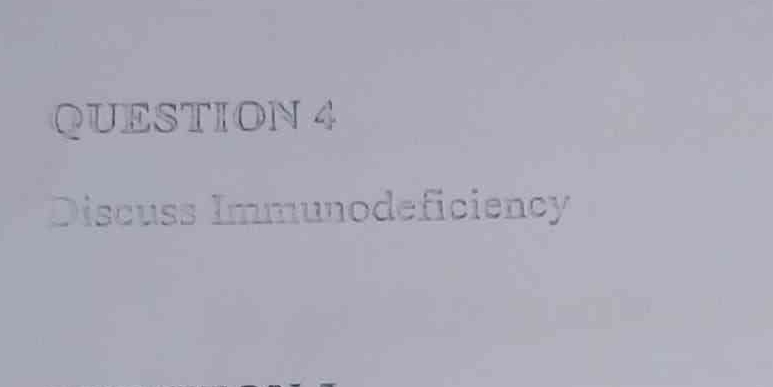Discuss immunodeficiency.

Understand the Problem
The question asks for a discussion on immunodeficiency, which is the state of having a weakened immune system. This would involve defining immunodeficiency, discussing its causes (genetic defects, infections like HIV, malnutrition, certain medications), different types (primary vs. secondary), and the consequences of having a compromised immune system (increased susceptibility to infections, autoimmune disorders, and cancers).
Answer
Immunodeficiency is when the immune system cannot protect the body against infections and diseases, due to absent or impaired immune components. It can be inherited or acquired, leading to increased susceptibility to infections.
Immunodeficiency is a condition where the immune system cannot protect the body against infections and diseases. It occurs due to the absence of or failure in elements of the immune system. Immunodeficiencies can be inherited (primary) or acquired (secondary). People with immunodeficiency disorders are more prone to infections.
Answer for screen readers
Immunodeficiency is a condition where the immune system cannot protect the body against infections and diseases. It occurs due to the absence of or failure in elements of the immune system. Immunodeficiencies can be inherited (primary) or acquired (secondary). People with immunodeficiency disorders are more prone to infections.
More Information
There are over 550 different types of primary immunodeficiencies.
Tips
Do not confuse immunodeficiency with autoimmune disorders, where the immune system attacks the body's own tissues.
Sources
AI-generated content may contain errors. Please verify critical information